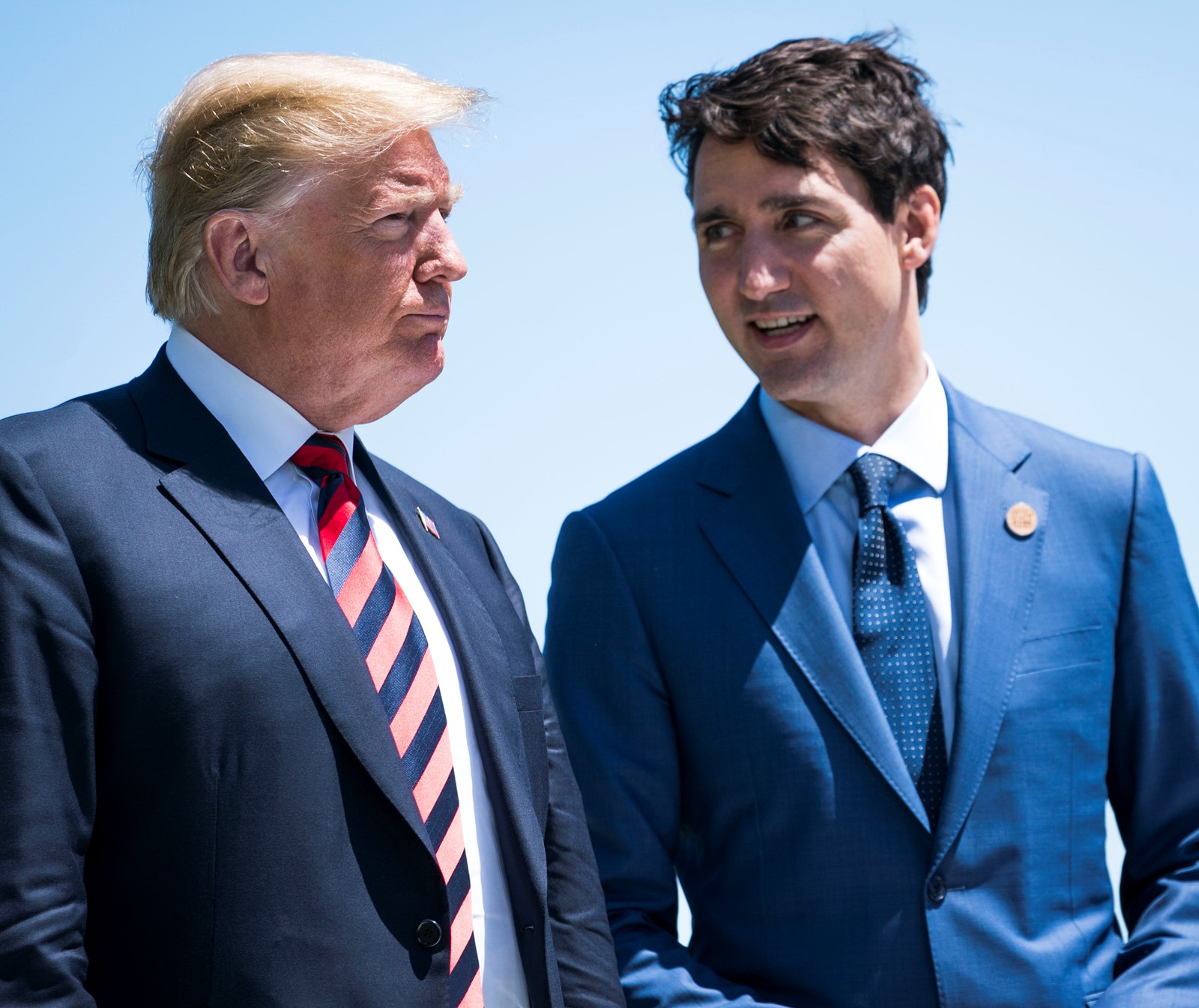
TORONTO — Booing during “The Star-Spangled Banner” at sports games in Canada.
“Buy Canadian” signs multiplying at grocery stores amid a brewing boycott of U.S. goods.
Cross-party calls to find new friends and customers on the global stage.
President Donald Trump may have paused his plans to impose crushing tariffs on Canada, pulling the two countries back from the brink of a trade war. But evidence abounds of the damage Trump has inflicted on the relations between the two nations.
After threatening levies on Canada, and Canada threatening to retaliate, Trump and Prime Minister Justin Trudeau came to an agreement Monday for a 30-day reprieve in the brewing trade war in exchange for new measures to tackle the flow of fentanyl.
canadians left livid
But the standoff has left many Canadians livid.
And Trump’s menacing rhetoric, especially his repeated statements that he wants the United States to annex Canada and make it the 51st state, seems to have fractured the fraternal trust that has, for more than a century, been the core of the relationship.
“This has damaged the relationship quite significantly, and there will be a period of sorting out,” said Jon Parmenter, professor of North American history at Cornell. “It has triggered really significant and striking emotional responses. It’s very raw for people.”
Parmenter noted that being the United States’ far less populous neighbor has not always been comfortable for Canadians, who are deeply aware of their dependence on trading with the United States and know that so many things emanating from their superpower neighbor influence their lives.
In the words of Pierre Elliott Trudeau, the former Canadian prime minister and father of the current one: “Living next to you is in some ways like sleeping with an elephant. No matter how friendly and even-tempered is the beast, if I can call it that, one is affected by every twitch and grunt.”
But, Parmenter added, rubbing in that dependence the way Trump has done, with his invocation of annexation and repeated complaints about Canada providing little in return to the United States, has touched off a visceral response.
History Matters
While Canada has been described as the United States’ closest friend for over a century, until World War II it was actually closer economically and politically to Britain. The Atlantic province of Newfoundland and Labrador was a British colony until it joined Canada, which it did only in 1949.
Events like the Vietnam War, the brutal crackdown in the South on protests during the Civil Rights Movement and the U.S.-led invasion of Iraq in 2003, which Canada strongly opposed, tested that friendship at times.
But it has generally been marked by moments like the Canadian response to the 9/11 terrorist attacks.
As flights to the United States were grounded, about 7,000 air travelers aboard dozens of diverted flights, mostly Americans, were taken in by the residents of Gander, Newfoundland. The scenes of heartfelt hospitality in one of the United States’ worst moments were recounted in the Broadway musical “Come From Away.”
In his emotional address to the nation Feb. 1, Justin Trudeau, who made sure to direct his comments to Canadians and Americans, did not forget those bonds.
He quoted President John F. Kennedy, who said about Canada: “Geography has made us neighbors, history has made us friends, economics has made us partners and necessity has made us allies.”
And he added: “From the beaches of Normandy to the mountains of the Korean Peninsula, from the fields of Flanders to the streets of Kandahar, we have fought and died alongside you.”
Trump’s targeting of Canada has forged a rare consensus among Canadians and among politicians who, until a week ago, were feuding amid one of the country’s most fraught political periods in recent history.


 PREVIOUS ARTICLE
PREVIOUS ARTICLE
